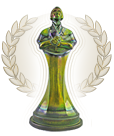Clara Janés Nadal (1940) is one of Spain’s best-known poets, but her name is associated also with many works in prose. Her father Josep Janés was also a poet and one of the most important Spanish publishers in the first half of the 20th century. She continued her studies in Barcelona, Pamplona and Paris. She has translated in several genres and from many languages; for the Hungarian reader perhaps her translations of the Czech poems by Vladimír Holan deserve a special mention. She has also translated from English, French, Portuguese, Romanian, Turkish, and even Persian. Her first volume was published in 1964, titled “Las estrellas vencidas” (Defeated Stars). In 1972 she was awarded the Essay Prize of the City of Barcelona and in the same year received the Premio Café Gijón Prize. In 1983 she was awarded the Grand Prize for Poetry of the City of Barcelona for her volume “Vivir” (To Live). In 1997 she was awarded the Spanish Translation Grand Prize for her work as a translator. In 2002, she received the XII. Jime Gil de Biedma Prize, one of the most prestigious Spanish literary honors, for her volume of poetry “Los secretos del bosque” (Secrets of the Forest). Amongst other recognitions, she was awarded the Barcarola International Poetry Award in 2005 for her volume “Los números oscuros” (Dark Numbers). In 2009 she received the Poetry Prize of the City of Torrevieja for “El fuego de la orilla” (Party Fire) and in 2014 she received the prize of the University of León for her volume of poetry titled “Épsilon, o el jardín de las delicias” (Epsilon, or the Garden of Pleasure). In 2007 she was awarded the 10th ‚Teresa de Ávila’ Spanish National Literary Prize. Movimientos insomnes (Sleepless Movements), her anthology, was published in 2015, and in the same year she was received the U-Chair of the Royal Spanish Academy. In 2018, she was awarded the IX. José Luis Sampdro Prize. Her poems have been translated into more than 20 languages. In one of her early verses, Clara Janés declared that all human destiny is in the hands of the „unknown / and (...) that which can’t be known”. She continues the classical Spanish mystical literary tradition, whose founders include St. Teresa of Ávila and San Juan de la Cruz. Her poems are characterized by an unremitting exploration of another reality, the world beyond the perceptible; her poetic quest is determined by a kind of orphic approach. For her, Orpheus represents the „par excellence”, the guiding poet. Her many influences include those which are eastern and western, mythological, mystical, and symbolic, but at the same time include a strong sense of responsiveness to different modern thoughts and philosophical systems. Reflection upon and the observation of mystical questions entails a particular aesthetic approach in her poems, which are interrupted by the enjoyment of the directly perceptible, sensual beauty of worldly pleasures. Her oeuvre as a whole is an eternal experiment to know the eternal unknown and her poetry forms strong threads within the intricate web of twentieth-century European poetry.

